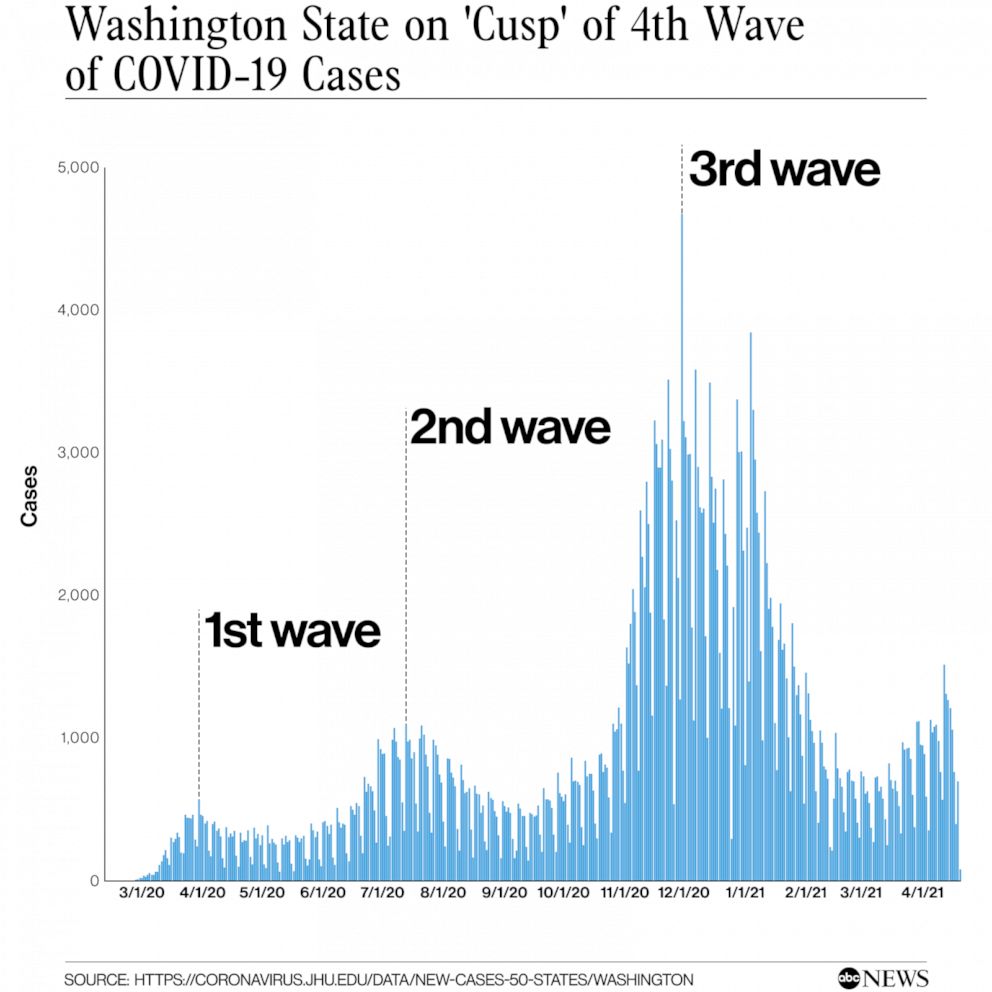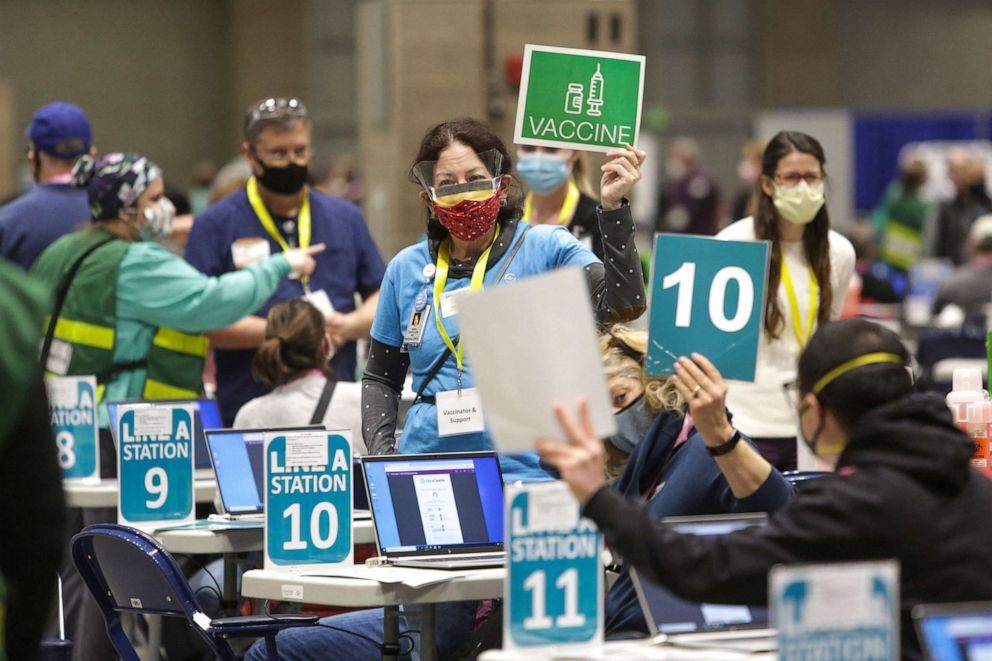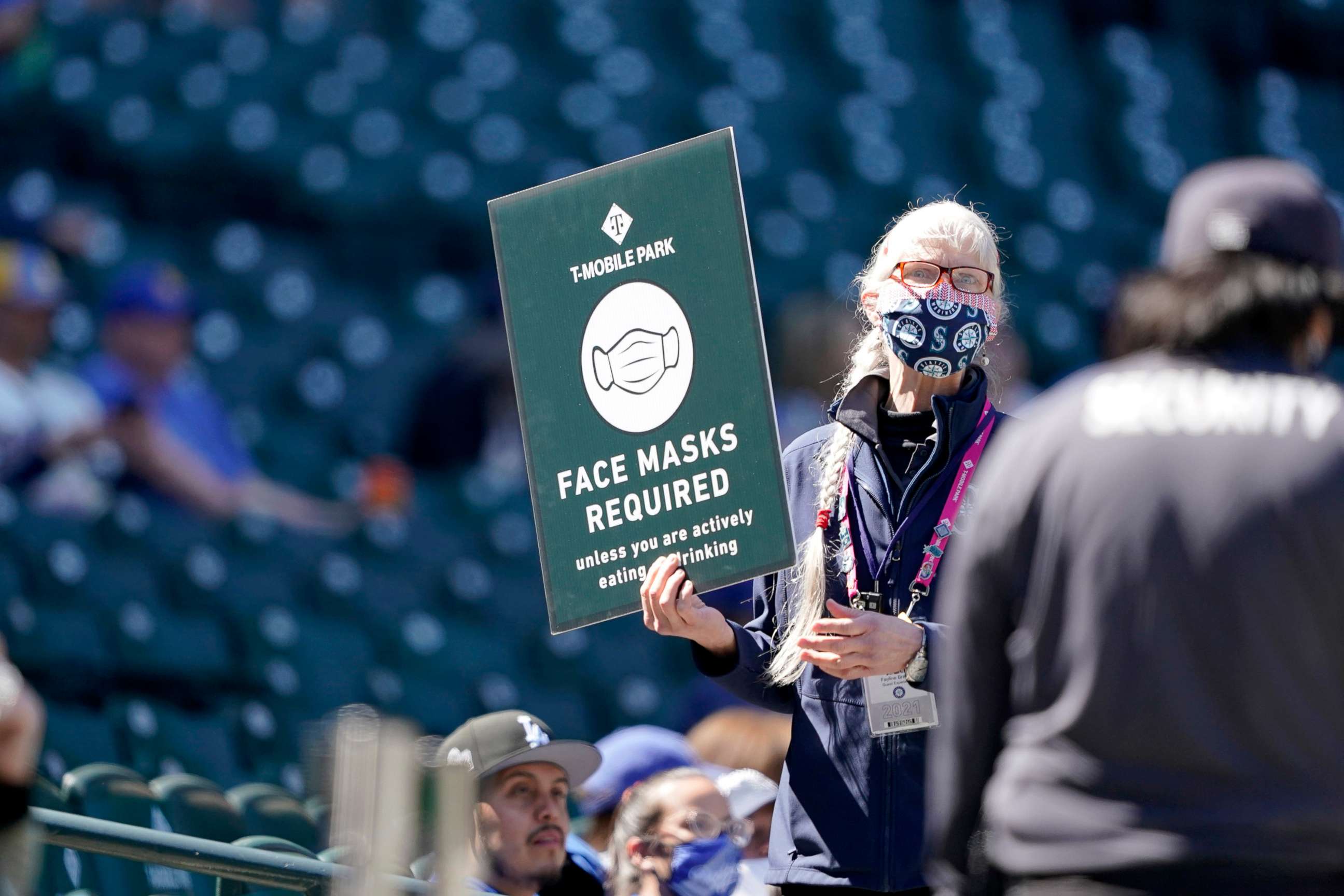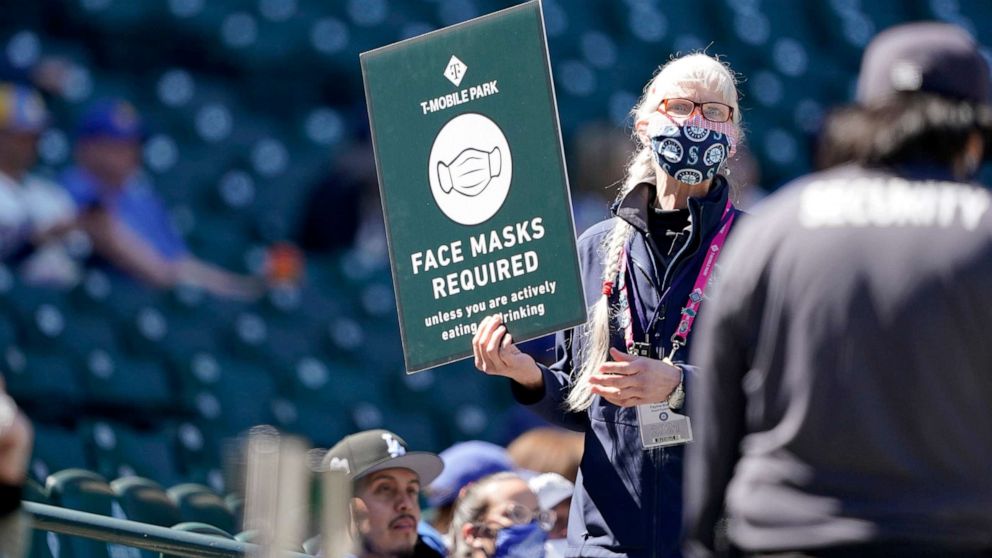Washington state on verge of 4th COVID-19 wave, officials warn
Washington officials are sounding the alarm that the state is on the "cusp" of a fourth COVID-19 wave that could curtail further reopening plans if not abated.
Health officials blamed a combination of waning diligence on mitigation measures and the spread of more transmissible variants, as COVID-19 cases have increased to levels seen at the beginning of the last wave in November.
"We'd like to be done with the virus, but the virus is not done with us," Gov. Jay Inslee said during a COVID-19 update Thursday. "Unfortunately we now are seeing the beginnings of a fourth surge in the state of Washington."
The state's most recent biweekly COVID-19 situation report, released Thursday, shows that "population immunity is helping control transmission, but isn't enough to counteract risky behavior," the Washington State Department of Health said.
The percentage of residents with active COVID-19 infections nearly doubled from March 1 to April 2, to 0.28%, according to the report. COVID-19 cases are increasing in most counties and across all ages, except in people 70 and older. After daily new cases plateaued in mid-February, they have increased from 728 on Feb. 15 to 1,076 on April 8.

After flattening in early March, COVID-19 hospital admissions are also on the rise, with the seven-day rolling average 48 as of April 8, up from 34 on March 4, the report said. Hospital admissions are increasing particularly among those ages 20 to 50, the least-vaccinated age groups, officials said this week.
Meanwhile, the state is also seeing a "disturbing" rapid increase in COVID-19 variants, acting State Health Officer Dr. Scott Lindquist said.
As of Tuesday, the state has seen a 32% increase in positive tests for COVID-19 variants over the past week, with the largest increase in the P.1 variant, first found in Brazil, the health department said.
"This couldn't happen at a worse time," Lindquist said during a press briefing Wednesday, noting that people are becoming more relaxed toward mask-wearing and social distancing as the weather improves. "It's time for us to reemphasize, you really ought to wear your mask every single time you're outdoors."
Dr. Umair Shah, the state's secretary of health, stressed the need for people to get vaccinated against the virus if they haven't yet.
The number of new COVID-19 cases is where they were in early November, though the slope is not as steep as it was then due to vaccinations, health officials said.
"Until we have more people vaccinated, we are still vulnerable," Shah said during Wednesday's briefing.
Washington was one of the last states to fully open up COVID-19 vaccine eligibility, expanding it to residents ages 16 and up on April 15. So far, 36.2% of residents ages 18 and older are fully vaccinated, according to the U.S. Centers for Disease Control and Prevention.

To help slow the spread, the state is setting a new goal of administering 90,000 shots per day statewide, Shah said, up from nearly 60,000 doses per day currently.
Until more people are vaccinated, health officials stressed the need to continue to wear masks, physically distance, keep social circles small and take gatherings outside.
"The challenge we're having right now is we cannot vaccinate our way out of increasing disease levels," Lacy Fehrenbach, deputy secretary for the state’s COVID-19 response, said during Wednesday's briefing. "We are going to have to use the tools that are available to all of us to slow the spread."
Washington has "been able to knock down those waves when they have hit us because we've been smart, we made decisions based on science, we've worn masks, businesses have been responsible," Inslee said Thursday.
With the state "on the cusp of a fourth wave," the governor warned during a town hall with AARP Washington on Wednesday that counties could regress to a more-restrictive reopening phase if metrics, including hospitalizations, continue to increase. The state will next assess its reopening plan on May 3.

Last week, three counties in the state moved back to phase 2 of the state's reopening plan, which reduces occupancy in restaurants, stores and other venues.
"If that trend continued, more counties would find themselves in that situation," Inslee said. "We obviously won't want to see that happen, and we don't think it has to happen."
"This is something that really calls for all of our continued dedication," he said.




